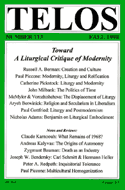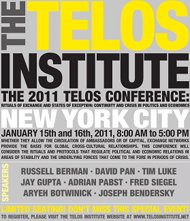 When Karl Marx described the commodity, he invoked the language of faith. For him, the commodity remained “a very strange thing, abounding in metaphysical subtleties and theological niceties.”[1] Marx, a dedicated secular economist, hesitated to pinpoint the exact power of the commodity. He could not fully understand it without recourse to a mythology he abhorred, one that far predated his radical recasting of accepted historical narratives. Here religion colors economics: the logic of exchange resembles a curious mysticism.
When Karl Marx described the commodity, he invoked the language of faith. For him, the commodity remained “a very strange thing, abounding in metaphysical subtleties and theological niceties.”[1] Marx, a dedicated secular economist, hesitated to pinpoint the exact power of the commodity. He could not fully understand it without recourse to a mythology he abhorred, one that far predated his radical recasting of accepted historical narratives. Here religion colors economics: the logic of exchange resembles a curious mysticism.
|
This paper was presented at the 2011 Telos Conference, “Rituals of Exchange and States of Exception: Continuity and Crisis in Politics and Economics.” |
||||
|
Telos Press Publishing · PO Box 811 · Candor, NY 13743 · Phone: 212-228-6479 Privacy Policy · Data Protection Copyright © 2024 Telos Press Publishing · All Rights Reserved |
||||
 For Max Weber, the spirit of capitalism is best understood in terms of Calvinist divine predestination. But by focusing on the Protestant work ethic, Weber’s thesis about the origins of modern capitalism is at once too broad and too narrow. Too narrow because he neglects the counter-Reformation Baroque scholasticism of influential Catholic theologians like Francisco Suárez that sunders “pure nature” from the supernatural and thus divorces man’s natural end from his supernatural finality. As a result, human activity in the economy is separated from divine deification and the market is seen as increasingly autonomous. In short, human contract is severed from divine gift.
For Max Weber, the spirit of capitalism is best understood in terms of Calvinist divine predestination. But by focusing on the Protestant work ethic, Weber’s thesis about the origins of modern capitalism is at once too broad and too narrow. Too narrow because he neglects the counter-Reformation Baroque scholasticism of influential Catholic theologians like Francisco Suárez that sunders “pure nature” from the supernatural and thus divorces man’s natural end from his supernatural finality. As a result, human activity in the economy is separated from divine deification and the market is seen as increasingly autonomous. In short, human contract is severed from divine gift. 






